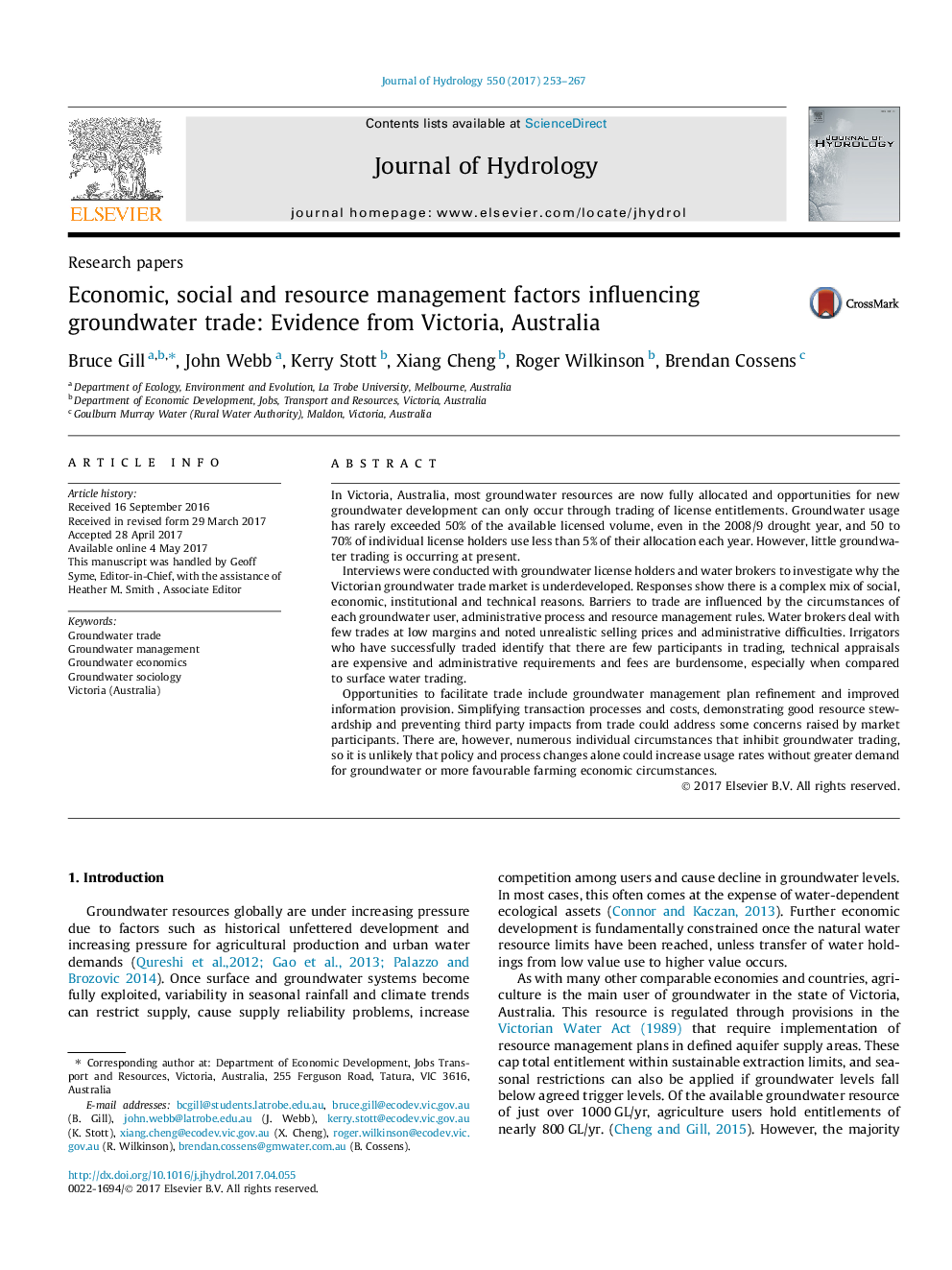| کد مقاله | کد نشریه | سال انتشار | مقاله انگلیسی | نسخه تمام متن |
|---|---|---|---|---|
| 5770754 | 1629904 | 2017 | 15 صفحه PDF | دانلود رایگان |
- Groundwater trading operates in a complex social, economic and regulatory framework.
- Social research has identified numerous factors that influence decisions.
- Economic findings show that market participants are well aware of water value.
- Successful trading requires favourable alignment of a number of factors.
- New 'trading pool' approaches may be needed to facilitate greater amounts of trade.
In Victoria, Australia, most groundwater resources are now fully allocated and opportunities for new groundwater development can only occur through trading of license entitlements. Groundwater usage has rarely exceeded 50% of the available licensed volume, even in the 2008/9 drought year, and 50 to 70% of individual license holders use less than 5% of their allocation each year. However, little groundwater trading is occurring at present.Interviews were conducted with groundwater license holders and water brokers to investigate why the Victorian groundwater trade market is underdeveloped. Responses show there is a complex mix of social, economic, institutional and technical reasons. Barriers to trade are influenced by the circumstances of each groundwater user, administrative process and resource management rules. Water brokers deal with few trades at low margins and noted unrealistic selling prices and administrative difficulties. Irrigators who have successfully traded identify that there are few participants in trading, technical appraisals are expensive and administrative requirements and fees are burdensome, especially when compared to surface water trading.Opportunities to facilitate trade include groundwater management plan refinement and improved information provision. Simplifying transaction processes and costs, demonstrating good resource stewardship and preventing third party impacts from trade could address some concerns raised by market participants. There are, however, numerous individual circumstances that inhibit groundwater trading, so it is unlikely that policy and process changes alone could increase usage rates without greater demand for groundwater or more favourable farming economic circumstances.
Journal: Journal of Hydrology - Volume 550, July 2017, Pages 253-267
